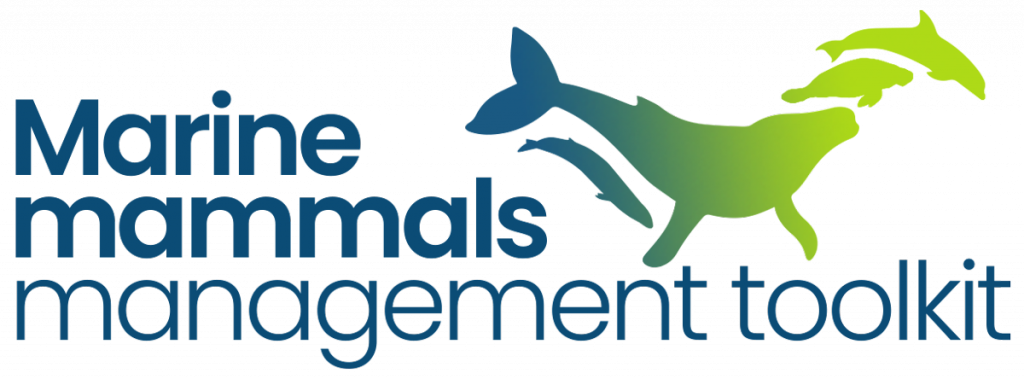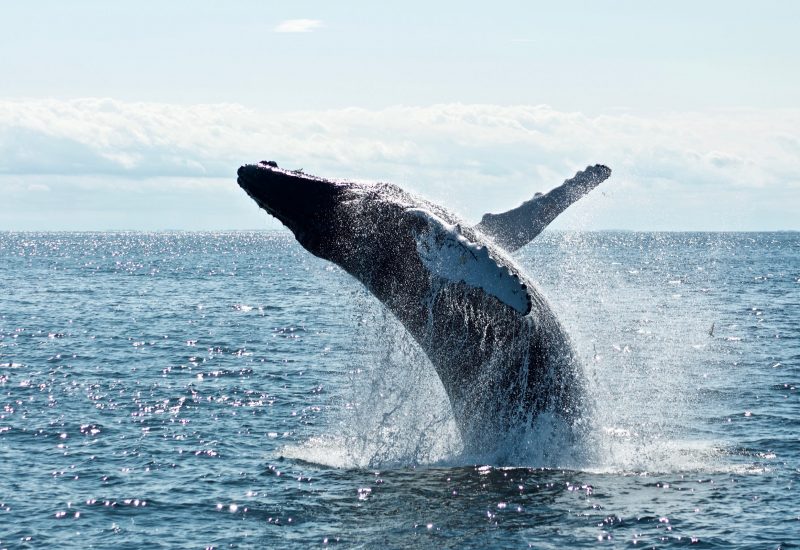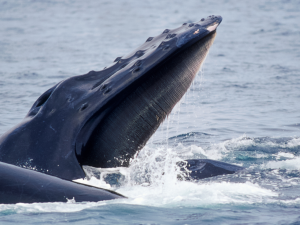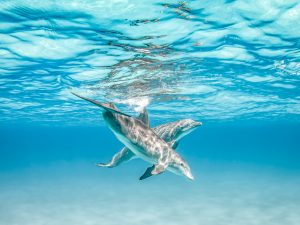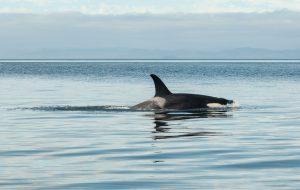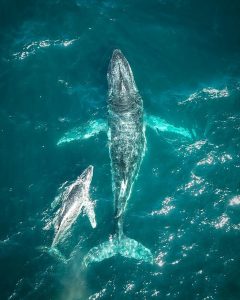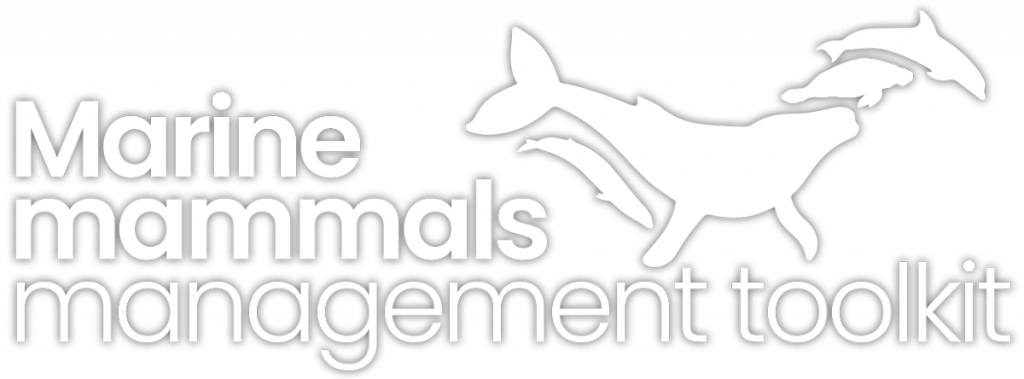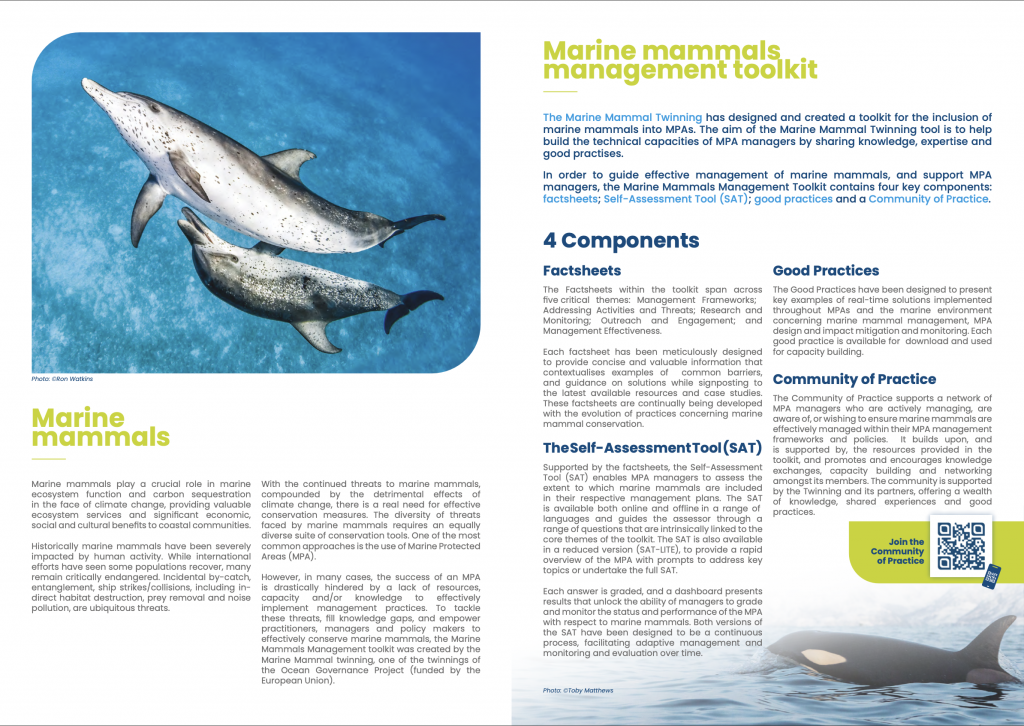Between March 6 – 11 2023, the Marine Mammal Twinning attended the 3rd Humpback Whale World Congress, held in Santo Domingo (Dominican Republic). The congress brought together all stakeholders involved in humpback whale conservation with this year’s edition being dedicated to “The Blue Economy for Sustainable Development” reflecting on the importance of humpback whales in their migratory areas.
The twinning, represented by Tom Dallison and Anna Safryghin, attended the congress to present the Marine Mammals Management Toolkit alongside its multifaceted application as a monitoring, evaluating, and capacity building tool for all marine users. On the first day of the congress, the Twinning presented the Marine Mammals Management Toolkit to over 80 researchers, organisation representatives and managers. The presentation also functioned as an introduction to the series of training workshops that the Twinning delivered as part of the congress.
The workshops, titled “Towards the effective management of marine mammals and MPAs: the Marine Mammals Management Toolkit” aimed to enhance understanding of the Toolkit, with a specific focus on the use of the Self-Assessment Tool and how it can be utilised in localised settings to support the management Marine Protected Areas (MPA). The workshops were attended by MPA practitioners, stakeholders and users from Haiti, Colombia, Ecuador and the Dominican Republic, representing all different stages of the MPA process; the initial scoping and MPA development phases, monitoring and evaluation of MPAs and reporting on the MPA’s progress and effectiveness. The workshops provided highly-specific and tailored sessions to managers and users to address their specific needs with respect to marine mammals and MPAs which highlighted the adaptability of the Toolkit to multiple scenarios, including its application on both a single marine mammal species as well as on the entire MPA, MPA zones and respective cetacean populations.
The congress strengthened ongoing partnerships with the AGOA Sanctuary and the Important Marine Mammal Areas (IMMAs), whilst exploring new avenues of collaborations. Specifically, discussions were lead on the use of the toolkit with the Haiti Ocean Project, Pacific Whale Foundation, Baleia Yubarte initiative and the newly launched “Caribbean Marine Megafauna and Anthropogenic Activities” (CAMAC) project.
The Twinning were able to provide highly-specific and tailored workshops to managers and users to address their specific needs with respect to marine mammals and MPAs
Moreover, to strengthen its presence and highlight the Toolkit’s application, the Twinning sponsored the participation of MSc student, Dalma Sonez from the University of the Republic of Uruguay. Dalma supported the Twinning in the delivery of the workshops, presenting the results of her thesis where the Toolkit was utilised to understand the level of protection afforded to marine mammals across 11 MPAs throughout the Americas. Dalma also presented her research to all conference attendees:
“Sharing my work with different professionals allowed me to exchange opinions and ideas on improvements for future research. Marine protected areas are a very important issue that should be on the agenda of all countries.”
The HWWC emphasised the toolkits adaptability to a range of local settings and user needs whilst being a valuable tool to enhance the effectiveness of MPAs across all stages of their respective development. More so, it highlighted the toolkit as a tool for capacity building, knowledge exchanges, and to guide communication. The Twinning look forward to continuing the valuable support to managers and users for the successful conservation of marine mammals.
